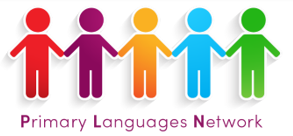Modern Foreign Languages - Spanish
Modern Foreign Languages Intent Statement
Introductory statement
We provide a Modern Foreign Language curriculum that is an opportunity for children to learn Spanish in a creative way that promotes enjoyment and love of languages and develops their understanding of not only Spanish but the English language also. We believe that children should learn to listen, speak, read and write in Spanish in Key Stage Two through exciting and engaging lessons.
During their time at Didsbury CE, we believe that children should have a range of language experiences. Consequently, the children will have the opportunity to become increasingly proficient and confident at:
- listening attentively to spoken language and show understanding by joining in and responding
- exploring the patterns and sounds of language through songs and rhymes and link the spelling, sound and meaning of words
- engaging in conversations; ask and answer questions; express opinions and respond to those of others; seek clarification and help
- speaking in sentences, using familiar vocabulary, phrases and basic language structures
- developing accurate pronunciation and intonation so that others understand when they are reading aloud or using familiar words and phrases
- presenting ideas and information orally to a range of audiences
- reading carefully and show understanding of words, phrases and simple writing
- appreciating stories, songs, poems and rhymes in the language
- broadening their vocabulary and develop their ability to understand new words that are introduced into familiar written material, including through using a dictionary
- writing phrases from memory, and adapt these to create new sentences, to express ideas
- clearly describing people, places, things and actions orally and in writing Languages
- understanding basic grammar appropriate to the language being studied
Addressing social disadvantage (A curriculum for life for all)
In a recent survey by National Association of Language Advisors (NALA, 2020), the following barriers to language learning were highlighted:
- Questions about holidays, family relationships, descriptions of a student’s house, restaurant visits, and live events were potentially problematic for vulnerable and disadvantaged pupils.
- Questions often mistakenly assume that students have “cultural capital”.
- Poor literacy skills are a barrier for some students
Many children at Didsbury CE have the opportunity to visit foreign countries, take cultural day trips, eat out at restaurants or live with a stable family unit, however, we are aware that this may not be the case for all of our pupils. Therefore, it is vital our Modern Foreign Languages curriculum ensures social disadvantages, ethnicity or disability do not impact a child’s ability to thrive in their languages education. A curriculum that motivates, engages and allows all to achieve needs to be intellectually challenging and meaningful (NALA, 2020). In light of the research by NALA, below are some of the ways we are addressing disadvantages amongst our pupils:
- Biannual Spanish culture day.
- Adapting the scheme of work resources to meet the needs of our classes, for example including a variety of family units such as step-parents, grandparents as parents, same-sex parents, aunts and uncles as parents, etc.
- Avoid content centred around personal experiences and provide a stimulus to scaffold learning. For example, photographs of a room with a selection of furniture for children to learn the names of rather than writing about what is in their home (potentially, some children may lack the same items as their peers which may cause, disengagement, anxiety or embarrassment).
- Scaffolded sheets, vocabulary mats and word classes support low attaining children, particularly those who are working below age-related expectations in literacy.
- Ensure children with SEND have the opportunity to attend and take part in Spanish lessons. Materials adapted to their individual needs.
- Enrichment opportunities such as visiting local Spanish restaurants and linking opportunities with a school in Spain.
Curriculum endpoints
The impact of this Spanish curriculum is that children will begin their lives as foreign language speakers with confidence and should lay the foundations for further foreign language teaching at Key Stage 3. It should enable pupils to understand and communicate ideas, facts and feelings in speech and writing, focused on familiar and routine matters, using their knowledge of phonology, grammatical structures and vocabulary.
Children in Key Stage 2 complete a half-termly assessment task consisting of reading, writing, speaking and listening. Children are assessed against the skills taken from Primary Languages and the DfE attainment targets before being recorded on the 1-5 school tracker. Their achievements in Spanish are reported formally to parents at the end of each academic year. The progress of each child will be tracked throughout their time at Didsbury CE Primary.
Curriculum planning and sequencing
At Didsbury CE, formal Spanish lessons start in Key Stage 2 and are taught by the class teachers utilising the Primary Languages Network scheme of work through weekly discrete lessons. The topics begin with basic greetings and progress to extended writing and speaking. In EYFS and Key Stage One, children are exposed to Spanish songs and key phrases during carpet time in preparation for language learning in Key Stage Two. They learn phrases such as, ‘buenos dìas – good morning’, ‘estoy aquì – I am here’ or ‘feliz Navidad – happy Christmas’ and use them during registration. Children also learn simple songs such as nursery rhymes, seasonal songs or daily routine songs in EYFS. However, Spanish is not taught as a discrete subject.
The skills taught are influenced by Primary Languages scheme of work and attainment targets provided by the DfE. New skills are introduced often and children have the opportunity to practise these alongside existing skills through a spiral curriculum approach, this ensures children have the chance to revise previous learning before moving forward. For example, in the Autumn term, Years 3 to 6 follow a similar theme of daily life. This begins with simple greetings and introductions in Year 3. Year 4 builds on this by introducing a friend and learning about school subjects. Year 5 develops this further by learning about feelings and giving opinions on school subjects. Finally, Year 6 concludes this skill by learning how to tell the time and complete a ‘day in the life’ activity which uses all the skills previously learned.


Reflecting the local context
We are currently involved in a 3-year Erasmus+ project to improve the teaching and learning in MFL. Through this project, we hope to achieve links with the local Spanish community in Manchester, develop strong links with a new school in Spain and work closely with our trust school, West Didsbury CE, who have also completed the Erasmus+ project to develop enrichment opportunities for pupils at both schools.
Historically, Didsbury CE has visited local Spanish restaurants where the children have practised using simple greetings and learned the names of the ingredients in Spanish food. The children have also benefited from having a pen pal in Spain to develop their reading and writing skills in Spanish.
A broad and balanced curriculum
In Didsbury CE we teach Spanish as a Modern Foreign Language within a knowledge-engaged curriculum. Spanish is taught as a discreet unit with links to the English curriculum; however, it has also been linked to Art, Geography, Music, PE, Design Technology and Computing. This provides an opportunity for the children to develop their understanding of Spanish culture as well as their writing, speaking and listening skills. The children have designed a paella dish for a family party in Design Technology, emailed pen-pals to a linked Spanish school and learned about the country during a Europe topic in Geography.
In addition, we hold a biannual Spanish day to celebrate Spanish culture. The children visit all four Key Stage 2 classrooms where they learn something new about Spain. Activities have previously consisted of:
- Art – Joan Miro artwork including mosaic making and surrealism
- Geography – Famous Spanish landmarks and maps. Children create posters of the landmarks using the map of the city in which it is located
- Design Technology – Paella or churros making
- PE – Spanish sports
- Speaking and Listening – Opportunities for children to practise their conversation skills on what they have enjoyed about Spanish Day
- Music – Learning traditional Spanish music and children’s songs.
High academic ambition
Spanish is taught once a week throughout the year. Each weekly Spanish lesson lasts for approximately 30 minutes. Primary Languages Netword scheme of work is used to structure and assess Spanish teaching. Resources provided are carefully selected by the class teachers and adapted where necessary to suit the needs of their individual classes. Primary Languages has been selected as it provides high-quality videos, speaking and listening opportunities for learners delivered by native Spanish speakers which is vital for effective language learning.
To ensure children receive the highest quality Spanish education, we take advantage of regular CPD and staff training provided by Primary Languages as we currently do not have a specialist Spanish teacher at Didsbury CE. Staff are also involved in an ongoing Erasmus+ project to develop their knowledge and confidence in the Spanish language. In turn, the increased confidence in teaching Spanish will dive standards in forward in MFL for all learners.
Spanish is a key part of our timetable and we pride ourselves on the variety of Spanish learning children experience. The design of the curriculum ensures the sequence of Spanish lessons imparts and builds upon previously learned language skills. We believe all children are entitled to study a second language and encourage children to take part in Spanish, regardless of their backgrounds. To achieve this, we provide weekly opportunities in school for language development, including Spanish word of the week (which is published in the weekly newsletter) and regular enrichment through Spanish culture day. Pupil Premium is well-used to ensure those entitled to funding are able to attend trips or receive necessary resources. Similarly, for children with SEND, activities are carefully planned and adapted to the individual needs of the child and appropriate resources or modifications are made to ensure they are able to access the learning. Our MFL curriculum enables all children to develop a second language, experience Spanish culture in the local or wider context and challenges all children to fulfil their potential.
Check out our Twitter page for regular updates on MFL at Didsbury CE!


